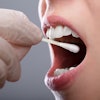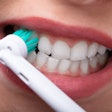
We live in a powerful information age. No matter what side of any issue you are on, your opinion can be "validated" by finding like-minded support on the internet and in the media. Human nature gravitates toward information supporting our opinion because we want to be right and we connect being right to our self-worth. An attack on our opinion feels like an attack on our very existence, so it should be no surprise that our country is more divided on so many issues like never before.
So now let's talk about fluoride. There is a lot of division out there!
I recently was alerted by the Wisconsin Dental Association and the Wisconsin Department of Health Services that a nearby village in my county was discontinuing its community water fluoridation. I was given three very informative pro-fluoride resources and encouraged to educate the village board leaders and support fluoridation. However, the village leaders cited safety issues regarding the dangers of storing fluoride and chlorine in the same chemical feed room.
"If these two chemicals mix, they will form a deadly gas that can be lethal in minutes," the director of public works said. Additionally, to correct the problem would cost the village tens of thousands of dollars that they possibly did not have, so fluoride gets the axe.
It appears that their practical argument to halt fluoridation makes sense, right? Or is that argument a tactic used by antifluoridationists who are promoting that danger to water operators in small communities and encouraging them to use that as an excuse to lead the charge to stop fluoridation for the perceived systemic health risks?
The answer appears to be yes because that strategy is working! Final decisions are being made to cease community water fluoridation and public health partners are not consulted to help these communities make an informed decision.
Now that the decision to drop fluoride from the community water supply has been made in this small village (by a 7-0 vote!), it seems like an exhausting uphill battle to change minds when apparently that ship has sailed.
How can this be happening? Fluoride in the water is a known benefit to our patients and not the dentists. Shouldn't we as dentists be outraged for those left unprotected? Many are, but where will that get us? What if we try and appreciate the other side's negative concerns about fluoride? You know, it only takes seconds for anyone to Google "reasons why you should avoid fluoride."
It's the information age, folks. Whether you agree or disagree, there is a very large percentage of antifluoride people out there now and it's about to grow like it's on steroids with the latest news that recently came out.
In a recent review by the National Toxicology Program, it has been determined with moderate confidence that higher estimated fluoride exposures are consistently associated with lower IQ in children.
This report is making its way around the internet and is sure to create a big stir among dentists and patients alike. This is more ammunition for cities to abandon fluoride in their water systems. It's already happening now and I expect more in the future.
I'm not here to argue one way or another on the controversial views regarding fluoride. Our patients will likely have conflicting views, yet I believe that we can serve both camps!
So what can we offer to the communities that drop fluoride and put more people at risk for cavities by losing frequent and consistent contact with low levels of fluoride that studies have shown reduce tooth decay in children and adults by 25%?
How about this? We now have silver diamine fluoride (SDF) that has been shown to prevent 80% of cavities with two applications per year. The collective fluoride doses of SDF are infinitesimally smaller than what you would receive from fluoride toothpaste or fluoridated tap water because here we are talking about two applications of SDF per year instead of two to four applications each day with fluoridated water and toothpaste.
"Our philosophy is to maximize effectiveness while minimizing the exposure to fluoride -- or any drug. We accomplish this by applying tiny amounts of high-concentration medicines directly to the problematic areas of the teeth and gums,” management of caries (MMC) expert and educator Dr. Jeremy Horst Keeper said. "The medicines absorb into the tooth, where they react to restore health, and there is hardly any left to spread into the body. The blood levels of fluoride never go up."
Then there's this from Dr. John Frachella: "The high concentration of F ions in the SDF also change hydroxyapatite into fluorapatite, making affected dentin and enamel more crystalline and more acid-resistant without waiting for patients to guzzle thousands of gallons of F H20, which would take much, much longer for similar effects. So, together (combination therapy), each ion of silver and fluoride is reactive against decay-causing bacteria and also highly reactive with minerals inside teeth in a way that gives structure to decay to repurpose it versus amputating it."
No unnecessary drilling is needed when you can heal and harden tooth structure this way!
Frachella has helped fluoridate more communities in Maine than probably anyone during his 20-plus-year stint as a "state fluoride expert." He says he wouldn't do it today, because times and opinions are changing and it's too stressful convincing folks of the benefits. Too many have made up their closed minds.
Frachella believes that the time needed today is much better spent educating state leaders about MMC and the potential of 96% reduced caries risk as being a better option for preventive care than drilling and filling will ever be. He feels that MMC is many times more effective, and he equates water fluoridation with trying to put out a forest fire with a squirt gun!
If cities drop fluoride from their water supplies, we now have the means to use simple, painless topical applications to give their populations an 80% reduced risk of caries with no systemic uptake of fluoride! That far exceeds the 25% reduced risk of caries from fluoridated community water supplies (the squirt gun!) and no multiple daily ingestions of fluoride!
Since the evidence continues to mount that chronic systemic fluoride is likely to cause a small (but negative!) effect on brain development, it becomes even more important that we look at better practical ways to reduce that caries risk. Similarly, general anesthesia for young children undergoing involved hospital dentistry presents a small but measurable effect on cognition and brain development too. Well, MMC care reduces both risks!
Even if those risks are small, parents will put a hard stop to anything that could risk a loss of 1% of their child's intellectual capacity. So let's acknowledge these concerns and move in a safer direction with a more effective fluoride use that reduces the need for subjecting children to risky hospital deep sedations for rampant caries that could have been halted with MMC.
Even if you are a proponent of safe levels of fluoride added to city water systems, communities across the land will continue to remove it from their water supplies. Concern among the public is certain to rise.
"Freedom" to many people means freedom from medicinal additives in their water that they didn't ask for, especially if they have concerns that there are risks associated with it. Though fluoride can come from several sources, researchers report that drinking water is the main source for Americans.
"The politics of fluoride mass medication may be unwinnable. Fortunately, we have SDF and MMC to the rescue," Dr. Steve Duffin said.
I don't have a strong opinion on which way to go with water fluoridation. The reality is that most cities will continue to add it and monitor it to keep it at generally recognized as safe levels that are somewhat effective at reducing cavities. As we learn more about the risks, you can expect that some communities will continue to remove it altogether. Since water fluoridation gives only a 25% reduction in cavities, we shouldn't have to fear the potential increase in cavities if we implement systems to reach those populations with MMC.
Since cavities can now be handled so simply, effectively, and conservatively with no drilling, you must ask yourself this question: Would you rather get a few cavities, or would you rather have a small negative impact on your cognitive development? By the way, there is no solution for fixing that one.
For more than 40 years, Dr. Chris Kammer has been a vocal advocate for an oral-systemic approach to disease prevention. He is the founder, first president, and current advisory board member of the American Academy for Oral Systemic Health (AAOSH). Dr. Kammer operates Victorious Dental in Madison, WI, where he does not use a drill or shots.
The comments and observations expressed herein do not necessarily reflect the opinions of DrBicuspid.com, nor should they be construed as an endorsement or admonishment of any particular idea, vendor, or organization.



















